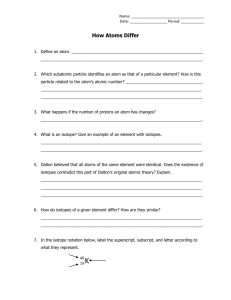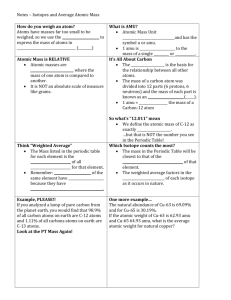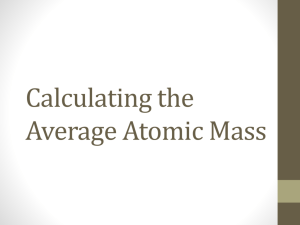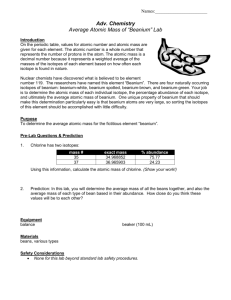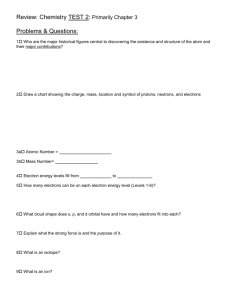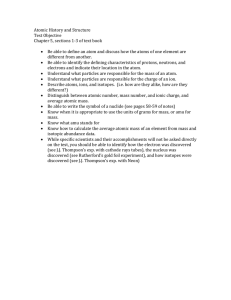Average atomic mass
advertisement
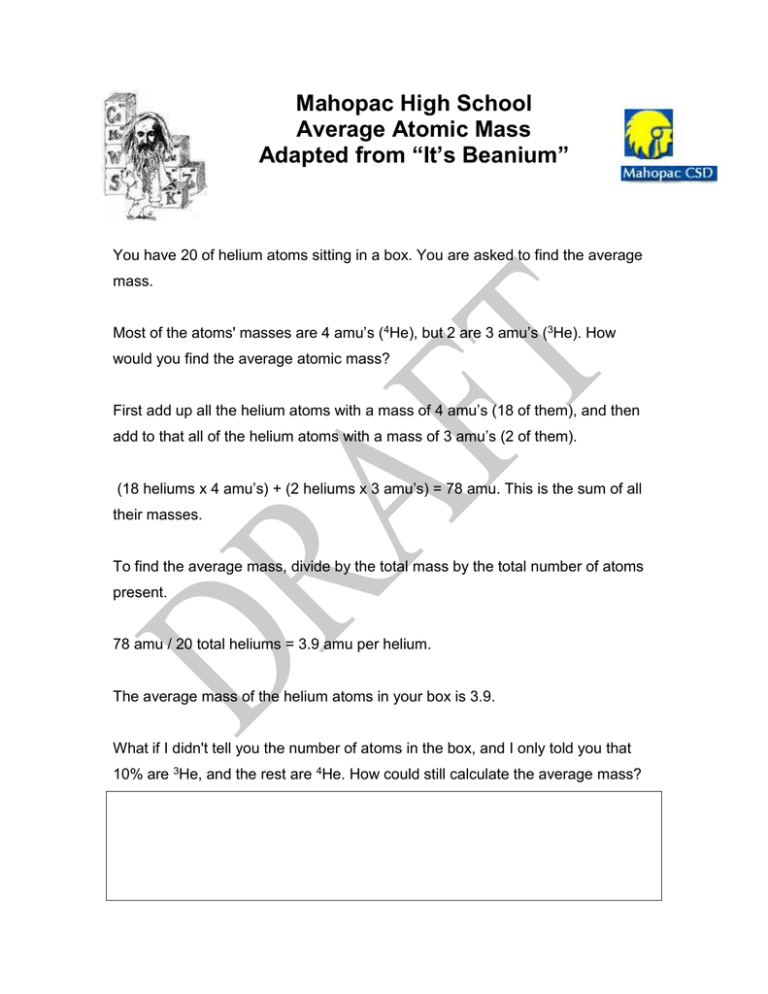
Mahopac High School Average Atomic Mass Adapted from “It’s Beanium” You have 20 of helium atoms sitting in a box. You are asked to find the average mass. Most of the atoms' masses are 4 amu’s (4He), but 2 are 3 amu’s (3He). How would you find the average atomic mass? First add up all the helium atoms with a mass of 4 amu’s (18 of them), and then add to that all of the helium atoms with a mass of 3 amu’s (2 of them). (18 heliums x 4 amu’s) + (2 heliums x 3 amu’s) = 78 amu. This is the sum of all their masses. To find the average mass, divide by the total mass by the total number of atoms present. 78 amu / 20 total heliums = 3.9 amu per helium. The average mass of the helium atoms in your box is 3.9. What if I didn't tell you the number of atoms in the box, and I only told you that 10% are 3He, and the rest are 4He. How could still calculate the average mass? Procedure: 1) Sort the beanium atoms into groups, each group representing a different isotope. 2) Record the total number of atoms (beans) in your sample, as well as the number of atoms (beans) of each isotope on your data sheet. 3) Find the total mass of each bean isotope. 4) Calculate the average atomic mass of each bean isotope. 5) Determine the percent abundance of each bean isotope in the sample. 6) Determine the atomic mass for “beanium’ based on your abundances for each bean isotope and their atomic masses. Calculations: Bean 1 Mass of a single bean % abundance Bean 2 Bean 3 Data Table: Sketch of # of (atoms Total mass of Mass of a each bean of) each bean each bean single (atom isotope isotope of) bean isotope % abundance Bean 1 Bean 2 Bean 3 Post Lab Questions: 1) Calculate the average atomic mass of potassium if the abundance and atomic masses making up its naturally occurring isotopes are: Isotope % abundance Mass of isotope Potassium-39 93.12% 38.964 Potassium-41 6.88% 40.962 2) The atomic mass of copper is 63.540 amu. It is composed of 2 isotopes; Cu-63 and Cu-65, with atomic masses of 62.390 amu and 64.928 amu respectively. What is the relative abundance of these isotopes in naturally occurring samples? 3) Write a short summary explaining how this lab illustrates the concept of average atomic mass.
